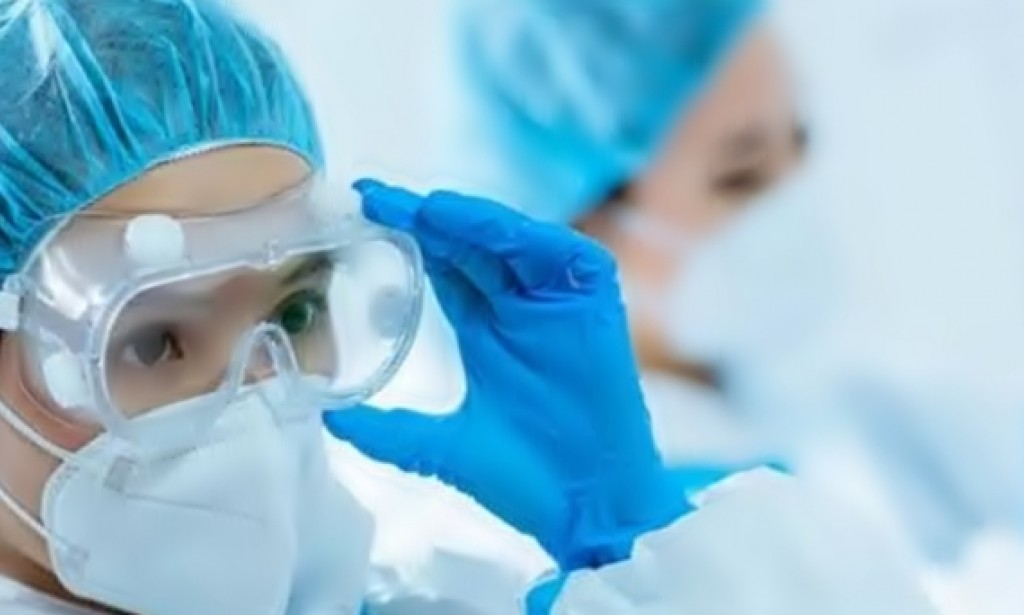Plastic that sterilises itself eliminates pathogens like Covid

Researchers have created a virus-killing material that may hinder the transmission of infections, such as Covid, in healthcare facilities.
The Queen's University Belfast team claims that its plastic film is inexpensive and might be used to create protective clothing, like aprons.
It functions by releasing chemicals that destroy the virus when exposed to light.
According to the study, it can destroy millions of viruses, even hardy types that stick to surfaces and clothing.
The study was hastened as part of the UK's reaction to the Covid epidemic.
The Covid virus has been found in studies to be able to persist on some surfaces for up to 72 hours, however that is nothing in comparison to hardier species. The norovirus, sometimes referred to as the winter vomiting bug, may endure outside the body for two weeks as it waits to infect a new victim.
The group of chemists and virologists looked on materials that may self-sterilize to lessen the possibility of contaminated surfaces spreading illnesses.
Making a substance so unfriendly to a virus that it cannot thrive there is the notion. Copper is a rigid metal that has been demonstrated to destroy germs immediately upon contact.
Therefore, the scientists made use of thin plastic sheets that were coated with titanium dioxide nanoparticles. These produce reactive oxygen species molecules when exposed to UV light, even the minuscule quantity given off by fluorescent bulbs.
These have an intense desire to participate in any chemical interaction. They interact with the genetic material of the virus, the proteins it utilises to enter our bodies, and the lipid sphere that connects them all. The outcome is a virus that is dead and worthless.
According to Professor Andrew Mills of the university's chemistry department, "This is the first time that anything like this has been developed."
This film might replace a lot of the throwaway plastic films used in the healthcare sector, he continued, because it has the advantage of being self-sterilizing at no actual additional expense.
In a lab setting, the substance was tested against two influenza viruses, the Covid virus, and a picornavirus, which possesses the characteristics that make viruses very durable outside of the body.
One million virus particles were deposited on the self-sterilizing plastic in a controlled laboratory setting. This is much more virus than would be required to cause an infection.
According to Dr. Connor Bamford of Queen's University's medical school, "it goes from one million viruses down to nothing, and we may observe an effect in less than one hour and maximal death in two hours."
However, we are introducing a very large number of viruses to the system, so it's possible that something will happen within the first few minutes.
The personal protective equipment now being used in hospitals, according to him, is effective, but "infections can occur when you take off or put on the PPE, so this can assist."
Hospital curtains and tablecloths are among the other topics under investigation, in addition to the food processing sector.
To determine how much of a difference self-sterilizing protective gear may make, however, appropriate experiments in the real world will be required.

يجب عليك تسجيل الدخول لتستطيع كتابة تعليق